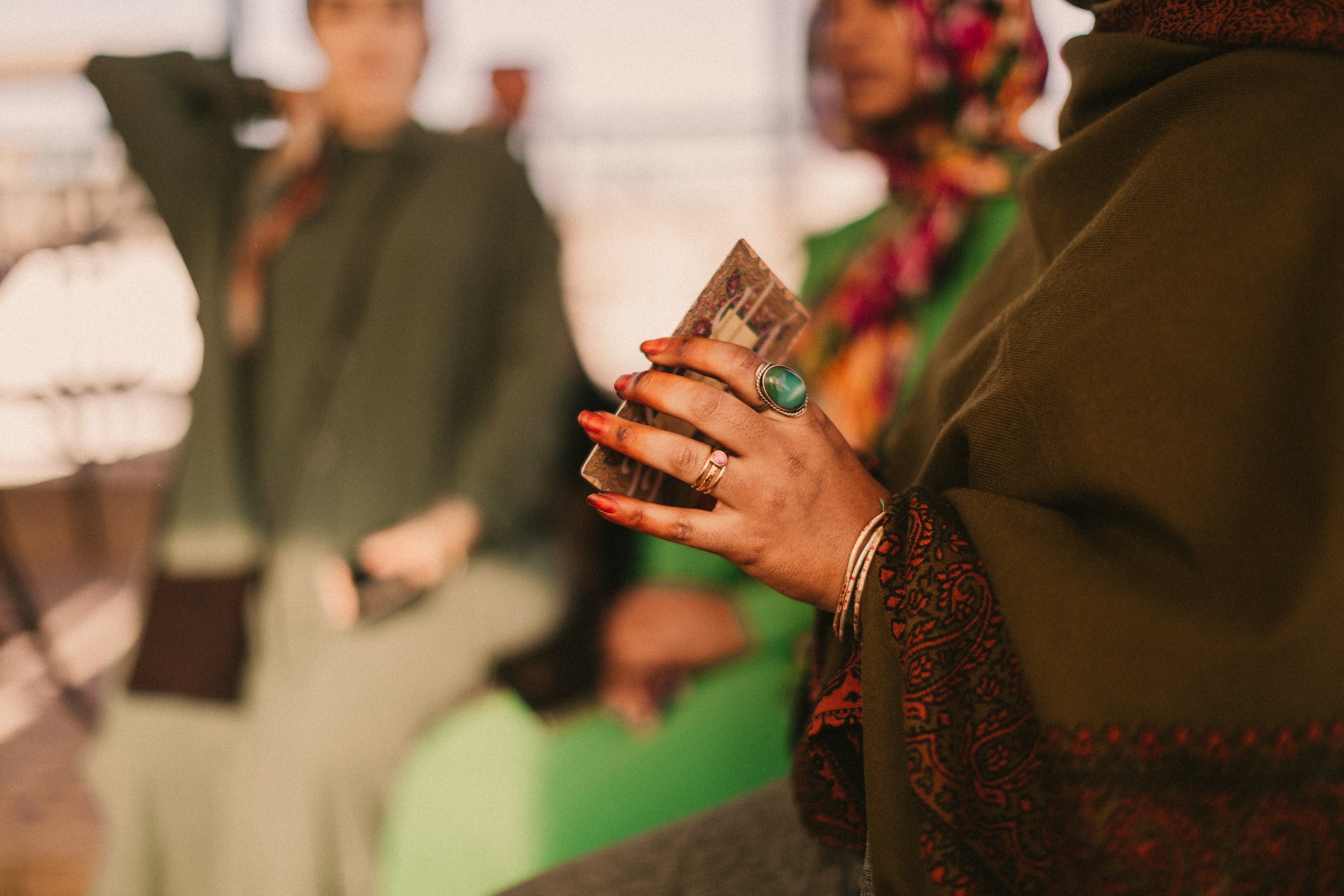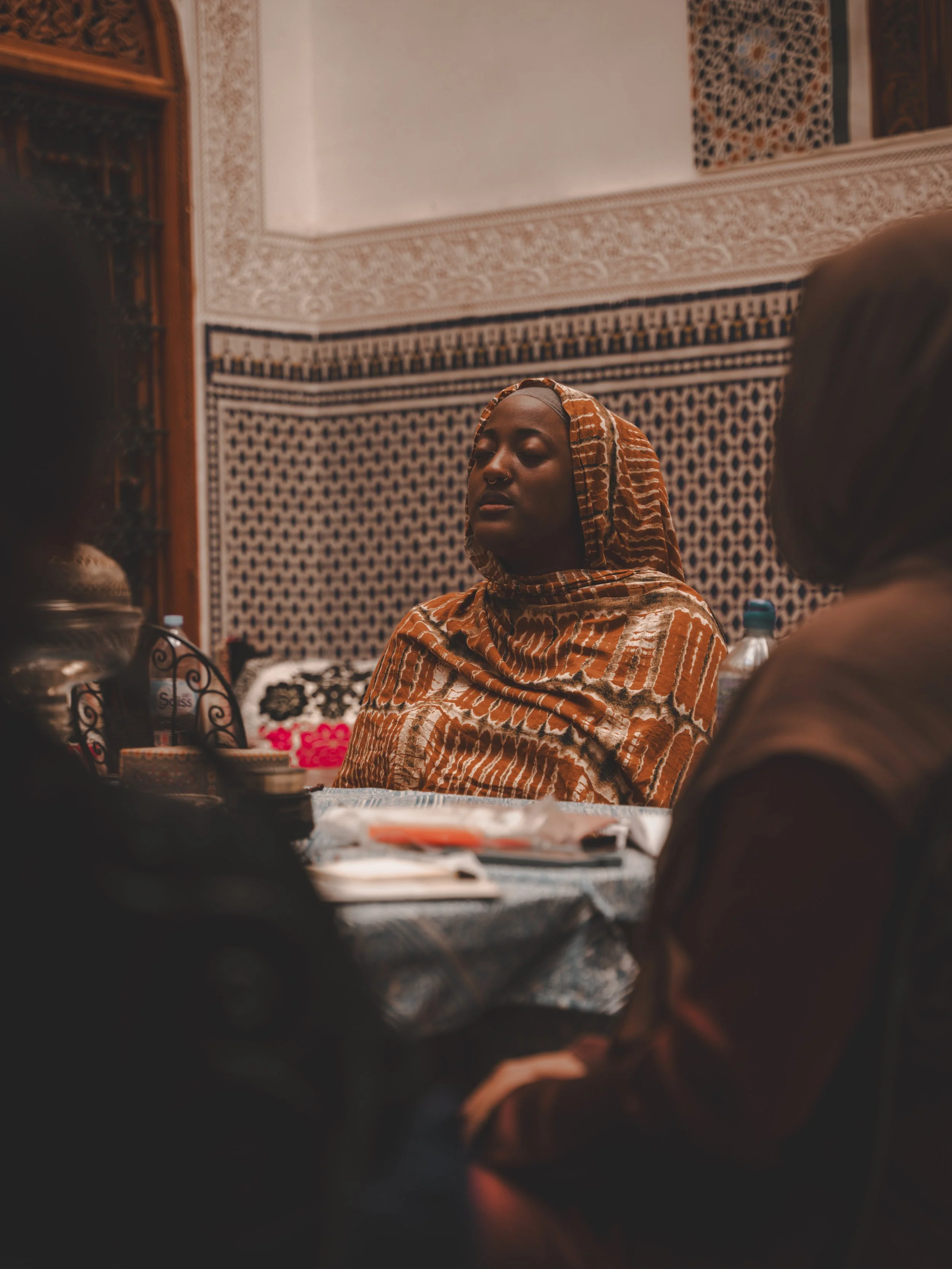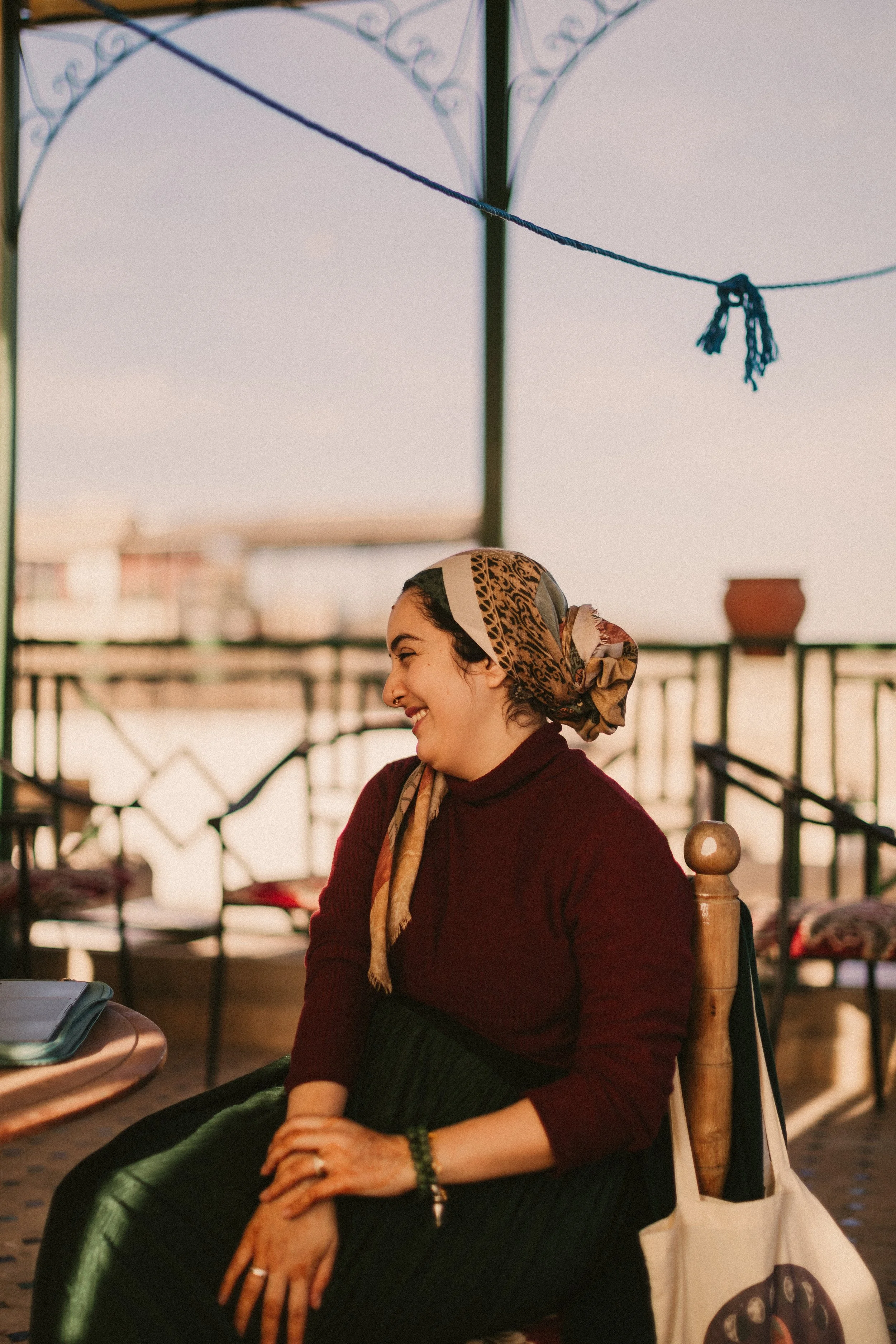
Meet the team
Shakirah Sabira
Spiritual womb guide
Shakirah Sabira entered the world of healing as a traditional birth worker and doula, after witnessing her first birth at the age of 18, it became clear that her work would be with women as part of this rite of passage. Shakirah completed her doula studies with Amani Birth and later began her midwifery studies with the world-renowned midwifery school of Indie Birth.
She is a certified peristeam facilitator, meditation teacher, EFT/TFT practitioner and womb moxibustion practitioner. She brings all of this into her work as a spiritual womb custodian and shares with other women through teaching, workshops and 1:1s. She attained her Mizan therapist practitioner training under the founder Bushra Finch in Marrakesh and has completed several practitioner training in various healing methods, following her desire to learn and increase her knowledge and skills in womb work.
She founded Barakah’s Womb in 2018 and has organised and run international retreats for women designed to embody this relationship with the womb for the past 4 years. Her work has been shared through various pieces of writing, guest workshops, and podcasts.
Shakirah is the author of The Womb’s Tale: the sanctity of the womb and her cycle and the creator of the Ruhaniat Al Rahim cycle chart.
Coming from mixed ancestry that has prioritised the pursuit of knowledge, she grew up sitting with beautiful teachers and their communities in the UK. Shakirah grew up in Damascus and studied at the world-renowned Jamia Abu Nour where she completed her drumming/duff certification. During this time, she was able to sit in the presence of great scholars like Sheikh Abd al-Rahman al-Shaghouri and Sheikh Ahmad Habbal.
She received ijazah for several Islamic sciences - including the 40 hadith of Imam Nawawi, the burdah, Arabic grammar, and various books of renowned scholars, including Imam Al- Ghazali and Imam Al-Haddad.
She is also a graduate of the Al Fajar Institute of Cairo and studied at Dar Al Zahra in Tarim, Yemen, and the Mauritanian desert.
She continues her pursuit of knowledge and brings this into the spaces she holds for women to connect to and heal their wombs. Most notably, drawing the connection between the womb and Islamic spirituality.
Shakirah Sabira is the author of The Womb’s Tale: the sanctity of the womb and her cycle.
Aamirah Patel
Ritual weaver & Medicine mother
Aamirah Patel is trained in naturopathy from the Unani medicine tradition and as a postpartum care practitioner. She facilitates workshops and retreats with Barakah’s Womb focusing on holistic well-being and addressing lifestyle balance through understanding womb and feminine health.
Aamirah has been blessed to learn from and work with many different communities, and sees the womb as an integral part of women’s ability to connect with themselves. She is deeply passionate about restoring life force qi, by equipping women with the tools to understand their different internal seasons, how this affects their temperament and find the gifts in their cyclical nature. She loves facilitating sisters' circles and spaces where women can authentically connect and share their experiences and call on one another as medicine.
She is driven by a calling to revive the remedies and innate medicine passed on through the generations of women in her lineage, and works with herbs to make teas, massage oils, and other natural medicines to treat imbalances in the body. When she isn’t learning new ways to ground, you’ll find her foraging or trying out new concoctions!
She studied with Hakim Salim, at COMHA, as well as with Dr Adi Setia at the Institute for Regenerative Livelihoods and most recently qualified as a postpartum practitioner with Rachelle Seliga and her school, Innate Traditions. She gained her masters in Civilization Studies with a focus on the connection between healing the earth and healing the self within the Islamic tradition. She is continuing to pursue studies in herbalism and the connection and benefits of herbs for the womb specifically.





